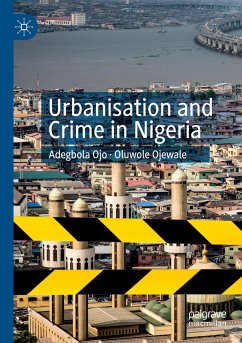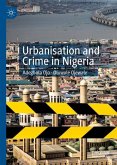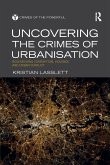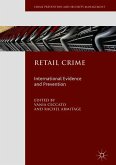This book uses crime-science and traditional criminological approaches to explore urban crime in the rapidly urbanising country Nigeria, as a case study for urban crime in developing nations. In Africa's largest democracy, rapid unmanaged growth in its cities combined with decaying public infrastructure mean that risk factors accumulate and deepen the potential for urban crime. This book includes a thorough explanation of key concepts alongside an examination of the contemporary configuration, dynamics, dimensions, drivers and potential responses to urban crime challenges. The authors also discuss a range of methodological techniques and applications that can be used, including spatial technologies to generate new data for analysis. It brings together history, theory, trends, patterns, drivers, repercussions and responses to provide a deep analysis of the challenges that confront urban dwellers. Urbanisation and Crime in Nigeria offers academics, researchers, governments, civil society organisations, citizens, and international partners a tool with which to engage in a serious dialogue about crime within cities, based on evidence and good practices from inside and outside sub-Saharan Africa.
Bitte wählen Sie Ihr Anliegen aus.
Rechnungen
Retourenschein anfordern
Bestellstatus
Storno









